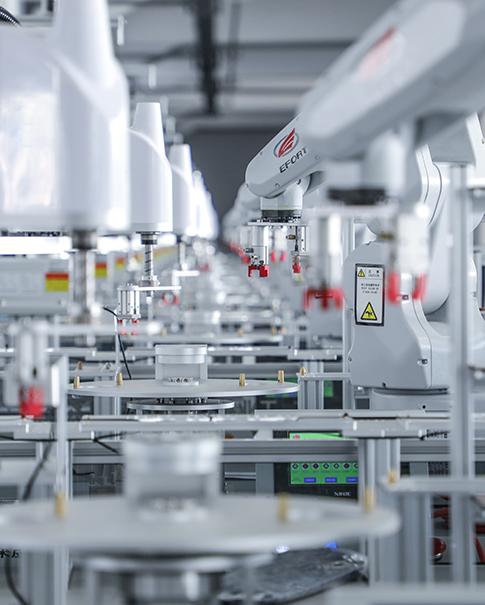AI drives PLC technology innovation, ushering in the intelligent era of industrial automation
August 12,2025
As the global manufacturing industry accelerates its digitalization and intelligentization, artificial intelligence (AI) is deeply integrating with programmable logic controllers (PLCs), ushering industrial automation into a new intelligent era. In the past, PLCs, as the core of industrial control systems, primarily relied on fixed logic and preset programs to execute tasks. However, with the incorporation of AI technology, PLCs are shifting from "passive execution" to "active decision-making," redefining their application scenarios and value.
The Limitations of Traditional PLCs and the Breakthroughs of AI
Traditional PLCs, renowned for their stability and high reliability, are widely used in production lines, process control, and mechanical manufacturing. However, they have limitations in data processing capabilities, flexibility, and adaptability to complex environments. The introduction of AI, particularly machine learning, deep learning, and predictive analytics, enables PLCs to analyze massive amounts of production data in real time, enabling dynamic optimization of production parameters, prediction of equipment failures, and intelligent adjustment of process flows. This not only reduces the need for manual intervention but also significantly improves production efficiency and product quality. Key Features of Intelligent PLCs
AI-driven intelligent PLCs are no longer simply hardware modules for signal processing and logic execution; they are intelligent control units with sensing, learning, and optimization capabilities. Their core features include:
Adaptive control: Automatically adjusts control strategies based on changes in the production environment, avoiding efficiency losses caused by fixed parameters.
Predictive maintenance: Predictive identification of potential equipment failures through data modeling reduces downtime and repair costs.
Energy optimization: Intelligently analyzes energy consumption distribution within the production process and proposes energy-saving solutions, contributing to green manufacturing.
Remote collaboration and cloud management: Integrating with the Industrial Internet of Things (IIoT), this enables centralized monitoring and scheduling across regions and multiple factories.
Accelerating adoption of industry applications
AI-driven PLCs are gradually replacing traditional control models in industries such as automotive manufacturing, electronics assembly, food processing, and chemical production. For example, an automotive production line uses a combination of intelligent PLCs and AI algorithms to achieve real-time optimization of welding parameters, improving welding accuracy by 15% while reducing energy consumption by 8%. In the chemical industry, AI algorithms predictively adjust reactor temperature and pressure, avoiding production losses caused by unexpected reaction anomalies. A Core Force Driving Smart Factory Construction
With the widespread adoption of Industry 4.0 and smart factory concepts, the AI + PLC model is becoming a key enabler for enterprises' digital transformation. By embedding AI models into PLC hardware or connecting them to cloud-based AI platforms, manufacturers can quickly establish intelligent production systems, achieving visualization and intelligentization of the entire process, from raw materials entering the factory to finished goods leaving the warehouse. This transformation not only improves production flexibility and responsiveness, but also gives companies greater initiative in global competition.
Future Outlook
Industry experts believe that future PLCs will no longer be simple controllers, but integrated intelligent nodes integrating AI, big data, cloud computing, and edge computing capabilities. With the advancement of chip performance and the continuous optimization of AI algorithms, intelligent PLCs will operate stably in more extreme and complex environments, driving industrial automation to a higher level. It is foreseeable that AI-driven PLC technological innovation will become a key engine for the intelligent upgrade of the manufacturing industry, opening up unprecedented opportunities for industrial automation.
 Network Supported
Network Supported